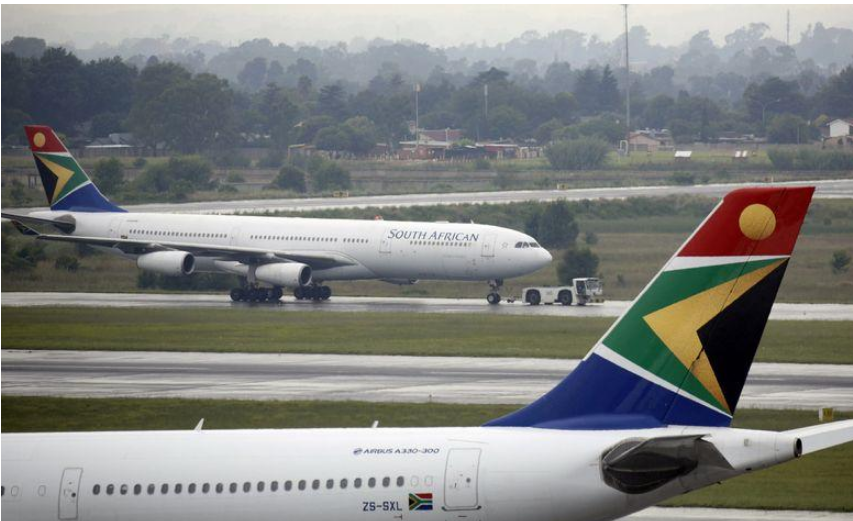
South African Airways rescue would be costly, plan shows
The South African government would need to find at least 10 billion rand ($580 million) in new bailout funds if it wants to rescue South African Airways (SAA) with most of its routes intact, a long-delayed rescue plan showed.

State-owned SAA’s longstanding frailties have been exacerbated by the COVID-19 pandemic, which has pushed even previously profitable airlines into financial distress.
SAA suspended commercial passenger flights in March, when the government imposed one of Africa’s strictest coronavirus lockdowns.
Rescue efforts have been the subject of fierce wrangling between the government, which wants SAA retained as a national asset, and the administrators who took over the airline in December after almost a decade of financial losses.
The administrators’ restructuring plan on Tuesday proposed the government fund or raise funding for a working capital injection of around 2.8 billion rand, 2.2 billion rand for layoffs, 3 billion rand for unflown tickets, 600 million rand for general concurrent creditors and 1.7 billion rand for lessors.
The Public Enterprises Ministry said in a statement that it would assess the plan and that it wanted to see “a competitive, viable and sustainable national airline”.
The Finance Ministry, which has authority over funding, did not respond to a request for comment on a public holiday.
The funding envisioned under the restructuring plan is on top of the 16.4 billion rand the government already set aside to repay SAA’s guaranteed debt and debt-service costs, as well as the cost of supporting the restructured SAA until it becomes profitable.
A projected income statement showed SAA making losses of more than 6 billion rand over the next three years.
The plan was based on SAA keeping almost all its African destinations, three of four domestic routes and roughly half its intercontinental destinations.
It envisages drastically scaling back the airline’s staff and fleet.
Until the end of August, while many travel restrictions are expected to remain in place, SAA would need only some 1,000 staff and six planes, compared with roughly 5,000 staff and 44 planes when it entered administration.
It would ramp up operations slowly, with staff numbers rising to 2,900 and a fleet of 26 planes. Such a dramatic staff reduction could lead to a confrontation with trade unions.
The administrators said they need the government’s support and a commitment on funding by July 15.






